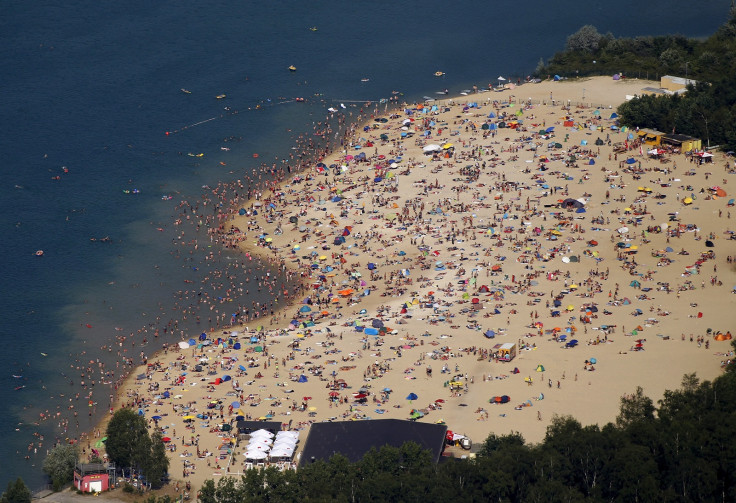German heat wave: Drownings spike on hottest day in history as temperatures hit 40.3 Celsius

Germany experienced the hottest day since records began on Sunday 5 July, with an increase in swimming accidents.
At least 12 people have drowned across the country, including a number of children among the fatalities.
These include a four-year-old who drowned in a quarry pond in Bavaria, and a six-year-old carried away by the current after swimming in the Rhine in Cologne.
In the western town of Siegen, a boy drowned in a natural outdoor pool; there were also reports of drownings in the states of Baden-Wuerttemberg, Hesse, Hamburg and Brandenburg.
The German Life-savers' Society (DLRG) said 392 people drowned in Germany last year, mostly in rivers and lakes, and recommended that people only swim where lifeguards are present.
The record-breaking temperature was taken at a weather station in Kitzingen, southern Bavaria read 40.3 degrees on Sunday, breaking the 2003 record by 0.1 degrees, the German Weather Service said.
The previous hottest day for Germany was in July 1983, when temperatures reached 40.16 degrees Celsius, according to BNO News.
Other European countries including Spain, Portugal, France, England and Belgium have also experienced very hight temperatures, AccuWeather.com reported.
Scientists said they were "virtually certain" climate change is increasing the likelihood of heatwaves - which consist of three-day periods of excessive heat – will become a regular occurrence in Europe.
Periods of sweltering temperatures like the German heatwave would have been rare in the 1900s, but weather experts predict they will happen every 15 years.
Maarten van Aalst, director of the Red Cross Red Crescent Climate Center, told Reuters that as heat waves occur more frequently, "it does resonate with a much wider audience that this is connected to climate change and we're facing a new normal."
© Copyright IBTimes 2024. All rights reserved.






